- Dissemination and advancement of knowledge by providing instructional and research facilities in various branches of learning.
- Making special provisions for integrated courses in humanities, social sciences, science and technology in educational programmes.
- Taking appropriate measures for promoting innovations in teaching-learning methods and interdisciplinary training and research.
- Educating and training human resource for the country's development.
- Establishing academic-industries partnership to promote advancements in science and technology.
- Paying special attention to the improvement of social and economic conditions and welfare of the people, especially pertaining to their intellectual, academic and cultural development.
About Central University of Gujarat

Established by Parliament of India through the Central Universities Act (2009), Central University of Gujarat (CUG) considers its main objectives to be dissemination and advancement of knowledge creation and sharing. The University is committed to make special provisions for integrated and interdisciplinary courses, to educate and train human resources for the country's development, to initiate appropriate measures for promoting innovation in teaching and learning and to pay special attention to improve the social and economic conditions and welfare of the people, especially pertaining to their intellectual, academic and cultural development.
The University was ranked overall 60th in India and 2nd among all the Universities in Gujarat in NIRF 2016 rankings. According to NIRF 2017, the University ranked among the top 150 Universities in the country.
Vision and Mission
Our Mission
The mission of CUG is to provide access to quality education and create opportunities for encouraging students to effectively engage with emerging innovations and technological challenges, international competitiveness and leadership in thought as well as in action. CUG is also conscious of the importance of developing entrepreneurial and scholastic abilities for creation of knowledge, wealth and prosperity for the country as well as peace and happiness for human beings.
Our Vision
The vision of CUG is to establish itself as a centre of excellence with social commitment by integrating modern, scientific and technological knowledge and skills with the basic human ethos and values. The University shall set forth a model in teaching, research and personality development and create skilled human resource with a sense of responsiveness towards society, the country and the world at large.
Objectives
Institution's Distinctiveness
Since its inception, Central University of Gujarat has incorporated interdisciplinary and multi-disciplinary approach in its academic curriculum, pedagogy and research. It has unique undergraduate courses like Integrated Social Management and various inter disciplinary Post Graduate courses in Industrial Chemistry, Environmental Science, Nano Technology, Defence and Strategic Studies, Social Sciences, International Studies, library science and Education. The University has been encouraging teaching and research not only across the discipline but also across knowledge domain. The University is also encouraging inter-disciplinary research in all schools with a special centre devoted to Diaspora Studies.
The success of the courses is manifested in its achievements where 16 patents were registered for its innovations out of which two are commercialised that are aligned with the Hon'ble Prime Minister's call for Self Reliant India and Vocal for Local. Besides, University has published 1717 research publications in the form of Books, Papers and Chapters in edited books in reputed national and international publication houses.
Annual Report & Annual Account
Facilities

Central Instrumentation Facility
The Central Instrumentation Facility (CIF) at the University is one of the best in the country. Currently, the CIF has a range of instruments which include:
- 500 MHz FT-NMR Spectrometer
- Single Crystal and Powder XRD
- Atomic Absorption Spectrophotometer
- Elemental Analyzer (CHNS/O)
- High-Performance Liquid Chromatography (HPLC)
- Gas Chromatography (GC) & Liquid Chromatography-Mass Spectrometry (LCMS)
- Fourier Transform Infrared Spectroscopy (FTIR)
- Brunauer Emmett Teller (BET) Surface Area Analyzer
- Inductively Coupled Plasma Optical Emission Spectrometer (ICP-OES)
- Spectroscopic Ellipsometer
- Green/Glass House
- Scanning Electron Microscope (SEM)
- Dynamic Light Scattering (DLS)

Central Library
The Central Library has a wide collection of resources taking into consideration the course contents and research needs of the university. Library's learning resource collections are developed aiming at providing the highest level of research and teaching support to the programmes and research thrust areas. The Library holds about 30,000 plus books, and subscribes to over 66 print journals and magazines and over 8000+ e-journals. The Library has KOHA software and computerized library facilities.
The Cyber Library provides seamless access to e-journals available at the university. It has over 29 Pentium workstations with broadband internet access.

Wi-fi and ICT Facility
The University is wi-fi enabled and students can access the internet on the basis of a personal id and password provided by the University. The University also has a CyberLab that enables students to access a large variety of resources on the web that includes journals, databases, and books.
Contact: Mr. S. Patel
spatel@cug.ac.in

Hostel Facility
Hostel accommodation both for men and women is available on a first come first allotment basis. The hostel fees are stipulated as per the norms of the University. Private accommodation on a shared basis is available at reasonable rates.

Health Facility
Government medical facility is available adjacent to the University Campus where the students can avail of medical help during medical hours. In addition, the Government Civil Hospital is located near the University. The University also has a medical consultant whose services are available to students on subsidized rates.

Remedial English
The Remedial English Programme is meant for the students of the University to assist them with a view to enhance their writing and speaking skills in English. The programme is conducted with the support of U.G.C. Coaching Scheme for SC/ST/OBC/NCL/MC.

Games and Sports
The University is aware of the importance of physical activities and organised sports and games programmes, which should be combined with the students academic pursuits. Keeping in view the limited space available at the present location of the University, basic sports facilities are available in the campus.
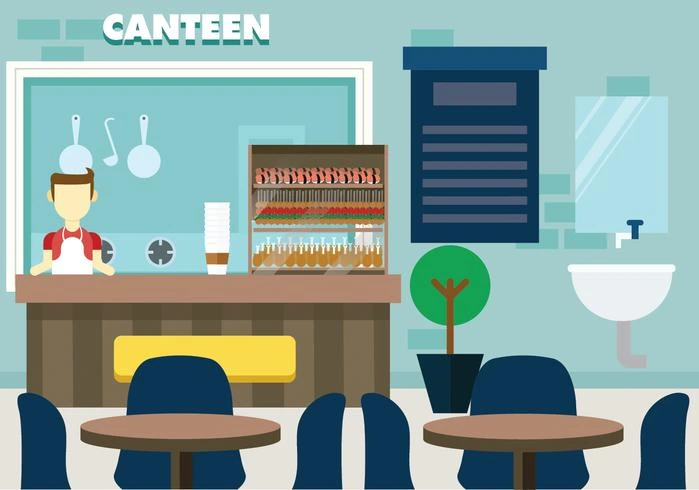
Canteen
The University offers a canteen facility where snacks, tea, coffee/dining in facility is available.

Transport Facility
The University has its own AC bus which is available for the students and University staff for their convenience.
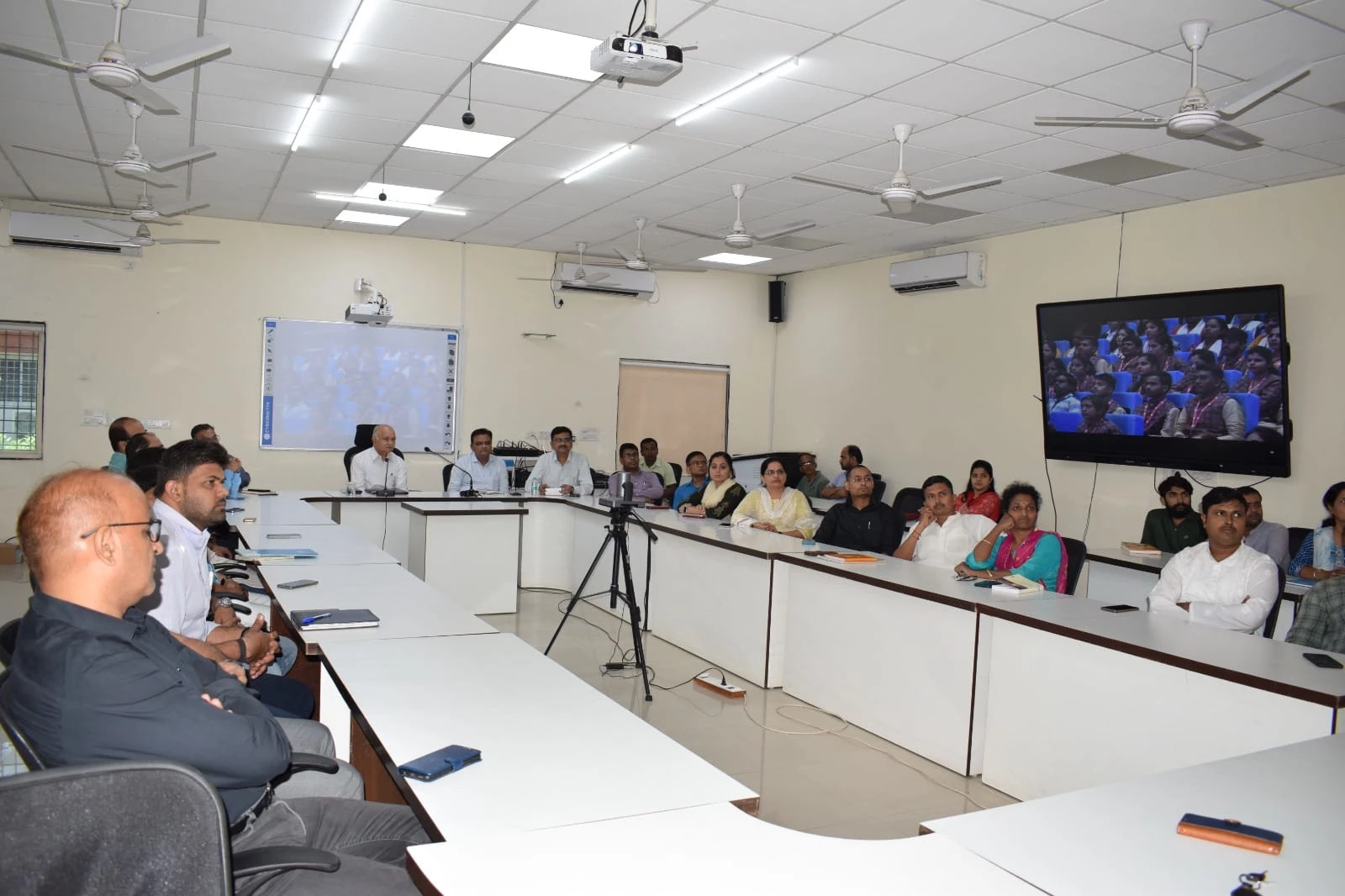
Conference Facility
The University has Well-equipped auditoriums and seminar halls to host academic conferences, workshops, and guest lectures.

Non-NET Fellowships
All the students enrolled for M.Phil. and Ph.D. programmes are eligible to receive a monthly fellowship of Rs. 3000/- and Rs. 5000/- respectively, and contingency amount of Rs.8000/- per annum through the UGC Non-NET fellowship initiative.

Welfare Schemes
The welfare schemes notified and implemented by the Government of India and UGC are followed in the University and the schemes, announced from time to time, are introduced within the University as applicable.
CUG Act, Statutes, Ordinance
Act
Statutes
Ordinances
Ordinance No. 65
View PDFOrdinance No. 12 (Ph.D. Admission)
View PDFAcademic Ordinance
View PDFOrdinance No. 14 (Award of Degrees)
View PDFOrdinance No. 15–18 & Guidelines No. 1
View PDFOrdinance No. 19
View PDFOrdinance No. 24–27
View PDFOrdinance No. 31–34
View PDFNew Ordinance No. 23, 25, 29–36 & 38
View PDFOrdinance No. 01, 02, 04, 06, 07, 09, 11, 12 & 14
View PDFOrdinance No. 03, 08 & 10
View PDFOrdinance No. 13 & 15–22
View PDFGazettes
Amendment in Gazetteer Ord. 11
View PDFKulgeet
Video
Audio
Campuses
Central University of Gujarat operates from its main campus located in Kundhela , Vadodara, Gujarat. The university is strategically located to provide easy access to students and faculty while maintaining a conducive academic environment.
Main Campus
Address: Kundhela, Taluka-Dhabhoi, Vadodara - 391107, Gujarat, India
The main campus houses all academic buildings, administrative offices,
hostels, library, and other essential facilities required for higher
education and research.
How to Reach
By Air
Vadodara Airport: The nearest airport is Vadodara Airport, approximately 15 km from the university. Regular flights connect Vadodara to major cities across India and international destinations.
Surat Airport: Located about 120 km from the university, Surat Airport offers additional connectivity options with regular domestic flights to major Indian cities.
Ahmedabad Airport: Sardar Vallabhbhai Patel International Airport in Ahmedabad is approximately 100 km away and provides extensive domestic and international flight connections, making it a convenient alternative for travelers.
By Train
Vadodara Junction railway stationn is the nearest railway station, about 18 km from the university. Vadodara Junction railway station, a major railway hub, is approximately 60 km away with excellent connectivity to all major cities.
By Road
The university is well-connected by road. Regular bus services operate from Vadodara and other major cities in Gujarat. The campus is easily accessible via NH48 and other state highways.
Local Transport
Local buses, auto-rickshaws, and taxis are readily available for transportation within Kundhela. The village also has a well-planned road network making commuting convenient.
Academic Calendar and List of Holidays
2026–27
Former Vice-Chancellors
Central University of Gujarat has been led by distinguished academicians and administrators who have contributed significantly to the growth and development of the institution.
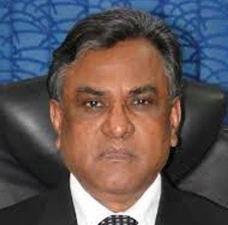
Prof. R. K. Kale
Founding Vice-Chancellor
March 2009 - March 2014
Prof. R. K. Kale served as the founding Vice-Chancellor of Central University of Gujarat. Under his visionary leadership, the university was established and laid strong foundations for academic excellence. He played a crucial role in setting up the initial infrastructure, academic programs, and administrative framework of the university.
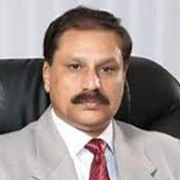
Prof. S. A. Bari
Vice-Chancellor
September 2014 - September 2019
Prof. S. A. Bari led the university through a period of significant growth and development. During his tenure, the university expanded its academic programs, strengthened research initiatives, and achieved notable rankings including NIRF rankings. He focused on enhancing the quality of education and research infrastructure.
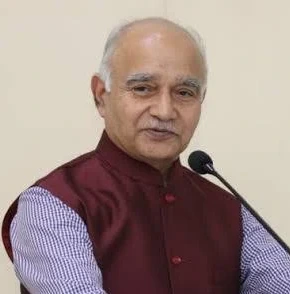
Prof. Rama Shanker Dubey
Vice-Chancellor
November 2019 - November 2025
Prof. Rama Shanker Dubey played a pivotal role in strengthening the academic and administrative foundation of the Central University of Gujarat. Under his dynamic leadership, the university witnessed significant growth in research output, infrastructural development, and academic quality. His emphasis on transparency, academic rigor, and institutional discipline created an environment conducive to excellence. One of the most notable achievements during his tenure was the university securing the prestigious NAAC A+ grade, reflecting his commitment to quality assurance and continuous improvement. His vision and efforts have left a lasting impact on the university’s progress and reputation at the national level.